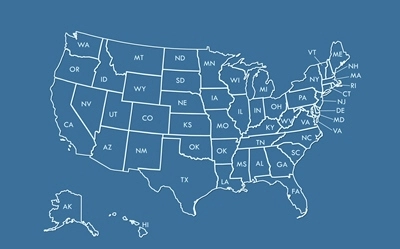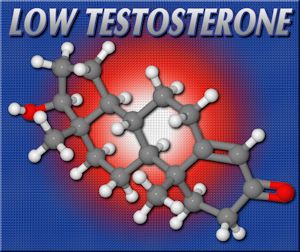Introduction
Prostate health is a significant concern for American men, with prostate cancer being one of the most common cancers diagnosed in this demographic. Recent research has begun to explore the potential effects of dietary factors, such as caffeine intake, on prostate health. This article delves into a prospective study that examined the relationship between coffee consumption and the risk of developing prostate cancer among American men, offering valuable insights into how everyday dietary choices might influence long-term health outcomes.
Study Design and Methodology
The study in question was a prospective cohort analysis that followed a large group of American men over a decade. Participants were required to report their daily coffee consumption, which was then categorized into low, moderate, and high intake groups. Researchers collected data on various factors, including age, family history of prostate cancer, and other lifestyle variables, to control for potential confounders. The primary outcome measured was the incidence of prostate cancer, diagnosed through regular medical screenings and self-reports.
Findings on Caffeine and Prostate Cancer Risk
The results of the study revealed a nuanced relationship between caffeine intake and prostate cancer risk. Men in the moderate coffee consumption group showed a slightly lower incidence of prostate cancer compared to those in the low intake group. However, the high intake group did not exhibit a significant difference in risk compared to the low intake group. These findings suggest that moderate coffee consumption might be associated with a reduced risk of prostate cancer, although the effect appears to plateau at higher levels of intake.
Potential Mechanisms of Caffeine's Effect
Several biological mechanisms could explain the observed relationship between caffeine and prostate health. Caffeine is known to have antioxidant properties, which may help combat oxidative stress and inflammation, both of which are implicated in the development of cancer. Additionally, caffeine may influence hormone levels, including testosterone, which plays a role in prostate function and growth. However, the exact pathways through which caffeine exerts its effects on prostate health remain a subject of ongoing research.
Implications for American Men
For American men concerned about prostate health, these findings offer a glimmer of hope that moderate coffee consumption could be part of a broader strategy to reduce cancer risk. However, it is crucial to approach these results with caution. Coffee consumption is just one aspect of a healthy lifestyle, and other factors such as diet, exercise, and regular medical check-ups are equally important. Men should not rely solely on coffee to mitigate their risk of prostate cancer but should consider it as part of a holistic approach to health.
Limitations and Future Research Directions
While the study provides valuable insights, it is not without limitations. The self-reported nature of coffee consumption data may introduce recall bias, and the study's observational design cannot establish causality. Future research should aim to confirm these findings through randomized controlled trials and explore the effects of other caffeinated beverages and dietary factors on prostate health. Additionally, genetic studies could help identify subgroups of men who might benefit most from moderate caffeine intake.
Conclusion
The relationship between caffeine intake and prostate health is complex, but the evidence suggests that moderate coffee consumption may be associated with a reduced risk of prostate cancer in American men. As research continues to unravel the intricacies of this relationship, men are encouraged to maintain a balanced lifestyle that includes regular health screenings and a nutritious diet. By staying informed and proactive about their health, American men can take meaningful steps toward reducing their risk of prostate cancer and improving their overall well-being.
Contact Us Today For A Free Consultation

- Prostate Health in Aging American Men: BPH, Cancer, and Lifestyle Management [Last Updated On: March 1st, 2025] [Originally Added On: March 1st, 2025]
- Prostate Health Essentials: Risks, Prevention, and Screening for American Men [Last Updated On: March 17th, 2025] [Originally Added On: March 17th, 2025]
- Understanding Benign Prostatic Hyperplasia: Symptoms, Diagnosis, and Management in American Men [Last Updated On: March 18th, 2025] [Originally Added On: March 18th, 2025]
- Prostate Health and Cancer: The Crucial Role of Family History in American Men [Last Updated On: March 19th, 2025] [Originally Added On: March 19th, 2025]
- Exercise Regimen for Optimal Prostate Health in American Men [Last Updated On: March 19th, 2025] [Originally Added On: March 19th, 2025]
- Navigating Life After Prostate Cancer: Health, Well-being, and Survivorship Strategies [Last Updated On: March 19th, 2025] [Originally Added On: March 19th, 2025]
- Dietary Strategies for Enhancing Prostate Health in American Men [Last Updated On: March 19th, 2025] [Originally Added On: March 19th, 2025]
- Prostate Cancer Screening: Controversies, Guidelines, and Future Directions [Last Updated On: March 21st, 2025] [Originally Added On: March 21st, 2025]
- Prostate Cancer Treatments: Understanding and Managing Side Effects for American Men [Last Updated On: March 21st, 2025] [Originally Added On: March 21st, 2025]
- Exercise as a Key to Prostate Health for American Males: Benefits and Recommendations [Last Updated On: March 21st, 2025] [Originally Added On: March 21st, 2025]
- Prostate Health and Heart Disease: Understanding the Connection and Risks for American Men [Last Updated On: March 21st, 2025] [Originally Added On: March 21st, 2025]
- Prostate Cancer's Psychological Impact on American Men: Diagnosis to Recovery [Last Updated On: March 21st, 2025] [Originally Added On: March 21st, 2025]
- Prostate Health: Understanding Symptoms, Seeking Care, and Maintaining Wellness in American Men [Last Updated On: March 22nd, 2025] [Originally Added On: March 22nd, 2025]
- Prostate Cancer Stages and Grades: A Comprehensive Guide for American Men [Last Updated On: March 22nd, 2025] [Originally Added On: March 22nd, 2025]
- Vitamin D's Role in Prostate Health: Insights and Recommendations for American Men [Last Updated On: March 22nd, 2025] [Originally Added On: March 22nd, 2025]
- Environmental Factors and Prostate Health: Risks and Mitigation Strategies for American Males [Last Updated On: March 22nd, 2025] [Originally Added On: March 22nd, 2025]
- Hydration's Vital Role in Prostate Health for American Males [Last Updated On: March 23rd, 2025] [Originally Added On: March 23rd, 2025]
- Avoid These Foods for Better Prostate Health in American Men [Last Updated On: March 23rd, 2025] [Originally Added On: March 23rd, 2025]
- Palliative Care's Vital Role in Enhancing Prostate Cancer Management and Quality of Life [Last Updated On: March 23rd, 2025] [Originally Added On: March 23rd, 2025]
- Chemotherapy's Role in Managing Prostate Cancer: Efficacy and Quality of Life in American Men [Last Updated On: March 24th, 2025] [Originally Added On: March 24th, 2025]
- Active Surveillance: A Tailored Approach to Managing Low-Risk Prostate Cancer [Last Updated On: March 24th, 2025] [Originally Added On: March 24th, 2025]
- Prostate Cancer and Cryotherapy: Benefits, Risks, and Management for American Men [Last Updated On: March 24th, 2025] [Originally Added On: March 24th, 2025]
- Prostate Cancer's Impact on Fertility: Treatments and Preservation Options [Last Updated On: March 24th, 2025] [Originally Added On: March 24th, 2025]
- Prostate Cancer and Radiation Therapy: Efficacy, Side Effects, and Future Advances [Last Updated On: March 24th, 2025] [Originally Added On: March 24th, 2025]
- HIFU: A Minimally Invasive Hope for Prostate Cancer Treatment [Last Updated On: March 24th, 2025] [Originally Added On: March 24th, 2025]
- Prostate Cancer Treatment: Understanding Brachytherapy's Benefits and Procedure [Last Updated On: March 24th, 2025] [Originally Added On: March 24th, 2025]
- Sleep's Crucial Role in Prostate Health for American Men [Last Updated On: March 25th, 2025] [Originally Added On: March 25th, 2025]
- Prostate Cancer Support Groups: Emotional, Educational, and Practical Benefits for Men [Last Updated On: March 25th, 2025] [Originally Added On: March 25th, 2025]
- Immunotherapy: A Promising Frontier in Prostate Cancer Treatment for American Men [Last Updated On: March 25th, 2025] [Originally Added On: March 25th, 2025]
- Omega-3 Fatty Acids: A Promising Approach to Prostate Health in American Males [Last Updated On: March 25th, 2025] [Originally Added On: March 25th, 2025]
- CyberKnife: Advanced, Non-Invasive Prostate Cancer Treatment for American Men [Last Updated On: March 25th, 2025] [Originally Added On: March 25th, 2025]
- Alcohol Consumption and Prostate Health: Insights and Recommendations for American Men [Last Updated On: March 25th, 2025] [Originally Added On: March 25th, 2025]
- Proton Therapy: A Targeted Approach to Treating Prostate Cancer in American Men [Last Updated On: March 25th, 2025] [Originally Added On: March 25th, 2025]
- Targeted Therapy: Revolutionizing Prostate Cancer Treatment for American Men [Last Updated On: March 25th, 2025] [Originally Added On: March 25th, 2025]
- Stress Impact on Prostate Health: Management Strategies for American Men [Last Updated On: March 25th, 2025] [Originally Added On: March 25th, 2025]
- Heavy Metals and Prostate Health: Risks and Prevention Strategies for American Males [Last Updated On: March 25th, 2025] [Originally Added On: March 25th, 2025]
- Photodynamic Therapy: A Promising Treatment for Prostate Cancer in American Men [Last Updated On: March 25th, 2025] [Originally Added On: March 25th, 2025]
- Hormone Therapy: Managing Prostate Cancer and Enhancing Life Quality [Last Updated On: March 25th, 2025] [Originally Added On: March 25th, 2025]
- Pesticides and Prostate Health: Risks, Mechanisms, and Prevention for American Males [Last Updated On: March 26th, 2025] [Originally Added On: March 26th, 2025]
- Green Tea Benefits for Prostate Health in American Males [Last Updated On: March 26th, 2025] [Originally Added On: March 26th, 2025]
- Antioxidants: Key to Prostate Health and Disease Prevention in American Males [Last Updated On: March 26th, 2025] [Originally Added On: March 26th, 2025]
- Selenium's Role in Prostate Health: Benefits and Optimal Intake for American Males [Last Updated On: March 26th, 2025] [Originally Added On: March 26th, 2025]
- Air Pollution's Emerging Link to Prostate Health Issues in American Males [Last Updated On: March 27th, 2025] [Originally Added On: March 27th, 2025]
- Lycopene's Role in Enhancing Prostate Health: Benefits and Dietary Sources [Last Updated On: March 27th, 2025] [Originally Added On: March 27th, 2025]
- Prostate Cancer Management: Understanding Watchful Waiting and Its Benefits [Last Updated On: March 27th, 2025] [Originally Added On: March 27th, 2025]
- Prostate and Bone Health: Understanding the Connection and Management Strategies [Last Updated On: March 27th, 2025] [Originally Added On: March 27th, 2025]
- Zinc's Vital Role in Prostate Health for American Males [Last Updated On: March 27th, 2025] [Originally Added On: March 27th, 2025]
- Plastics and Prostate Health: Risks, Research, and Mitigation Strategies for American Males [Last Updated On: March 28th, 2025] [Originally Added On: March 28th, 2025]
- Chronic Inflammation's Impact on Prostate Health in American Males: Risks and Management [Last Updated On: March 28th, 2025] [Originally Added On: March 28th, 2025]
- Chemoprevention Strategies for Prostate Cancer: Agents and Clinical Insights [Last Updated On: March 28th, 2025] [Originally Added On: March 28th, 2025]
- Prostate Cancer Surgery: Benefits, Risks, and Comprehensive Management for American Men [Last Updated On: March 29th, 2025] [Originally Added On: March 29th, 2025]
- EMFs and Prostate Health: Risks, Mechanisms, and Mitigation Strategies for American Males [Last Updated On: March 30th, 2025] [Originally Added On: March 30th, 2025]
- Vitamin E's Role in Prostate Health: Benefits and Considerations for American Males [Last Updated On: March 31st, 2025] [Originally Added On: March 31st, 2025]
- Robotic Surgery for Prostate Cancer: Benefits and Procedure for American Men [Last Updated On: April 2nd, 2025] [Originally Added On: April 2nd, 2025]
- Prostate Cancer: Focal Therapy's Role in Minimizing Side Effects for American Men [Last Updated On: April 3rd, 2025] [Originally Added On: April 3rd, 2025]
- Cruciferous Vegetables: A Dietary Approach to Enhancing Prostate Health in American Males [Last Updated On: April 5th, 2025] [Originally Added On: April 5th, 2025]
- Endocrine Disruptors and Prostate Health: Risks, Exposure, and Mitigation Strategies [Last Updated On: April 5th, 2025] [Originally Added On: April 5th, 2025]
- Industrial Chemicals and Prostate Health: Risks and Prevention Strategies [Last Updated On: April 5th, 2025] [Originally Added On: April 5th, 2025]
- Soy Benefits for Prostate Health: Reducing Cancer Risk and Managing BPH [Last Updated On: April 8th, 2025] [Originally Added On: April 8th, 2025]
- Laparoscopic Prostatectomy: Minimally Invasive Cancer Treatment and Recovery Insights [Last Updated On: April 8th, 2025] [Originally Added On: April 8th, 2025]
- Adjuvant Therapy's Role in Managing Prostate Cancer Among American Men [Last Updated On: April 8th, 2025] [Originally Added On: April 8th, 2025]
- Salvage Therapy: A Second Chance for American Men with Prostate Cancer Recurrence [Last Updated On: April 9th, 2025] [Originally Added On: April 9th, 2025]
- Neoadjuvant Therapy in Prostate Cancer: Insights for American Men's Health [Last Updated On: April 10th, 2025] [Originally Added On: April 10th, 2025]
- Medications and Prostate Health: Impacts, Monitoring, and Holistic Management for American Men [Last Updated On: April 10th, 2025] [Originally Added On: April 10th, 2025]
- Flaxseed: A Natural Approach to Enhancing Prostate Health in American Males [Last Updated On: April 11th, 2025] [Originally Added On: April 11th, 2025]
- Pomegranates: A Natural Approach to Enhancing Prostate Health in American Males [Last Updated On: April 12th, 2025] [Originally Added On: April 12th, 2025]
- Palliative Surgery for Prostate Cancer: Enhancing Quality of Life for American Men [Last Updated On: April 12th, 2025] [Originally Added On: April 12th, 2025]
- Bisphosphonates: Enhancing Bone Health in Metastatic Prostate Cancer Management [Last Updated On: April 13th, 2025] [Originally Added On: April 13th, 2025]
- Shift Work's Impact on Prostate Health: Risks and Mitigation Strategies [Last Updated On: April 16th, 2025] [Originally Added On: April 16th, 2025]
- Ginger's Potential Benefits for Prostate Health in American Males [Last Updated On: April 16th, 2025] [Originally Added On: April 16th, 2025]
- Radium-223: A Targeted Therapy for Advanced Prostate Cancer in American Men [Last Updated On: April 16th, 2025] [Originally Added On: April 16th, 2025]
- Heavy Physical Work's Impact on Prostate Health in American Males [Last Updated On: April 16th, 2025] [Originally Added On: April 16th, 2025]
- Turmeric's Role in Enhancing Prostate Health: Benefits and Clinical Insights [Last Updated On: April 17th, 2025] [Originally Added On: April 17th, 2025]
- Abiraterone: Advancing Treatment for Metastatic Prostate Cancer in American Men [Last Updated On: April 17th, 2025] [Originally Added On: April 17th, 2025]
- Denosumab: A Promising Treatment for Prostate Cancer with Bone Metastases [Last Updated On: April 17th, 2025] [Originally Added On: April 17th, 2025]
- RANK Ligand Inhibitors: A New Hope in Managing Advanced Prostate Cancer [Last Updated On: April 18th, 2025] [Originally Added On: April 18th, 2025]
- Prostate Health Risks and Strategies for Long-Haul Truckers [Last Updated On: April 18th, 2025] [Originally Added On: April 18th, 2025]
- Enzalutamide: A New Hope in Prostate Cancer Treatment for American Men [Last Updated On: April 20th, 2025] [Originally Added On: April 20th, 2025]
- Prostate Cancer: Symptoms, Diagnosis, Treatment, and Proactive Health for American Males [Last Updated On: April 22nd, 2025] [Originally Added On: April 22nd, 2025]
- Tomatoes and Prostate Health: The Role of Lycopene in Cancer Prevention [Last Updated On: April 22nd, 2025] [Originally Added On: April 22nd, 2025]
Word Count: 591




















